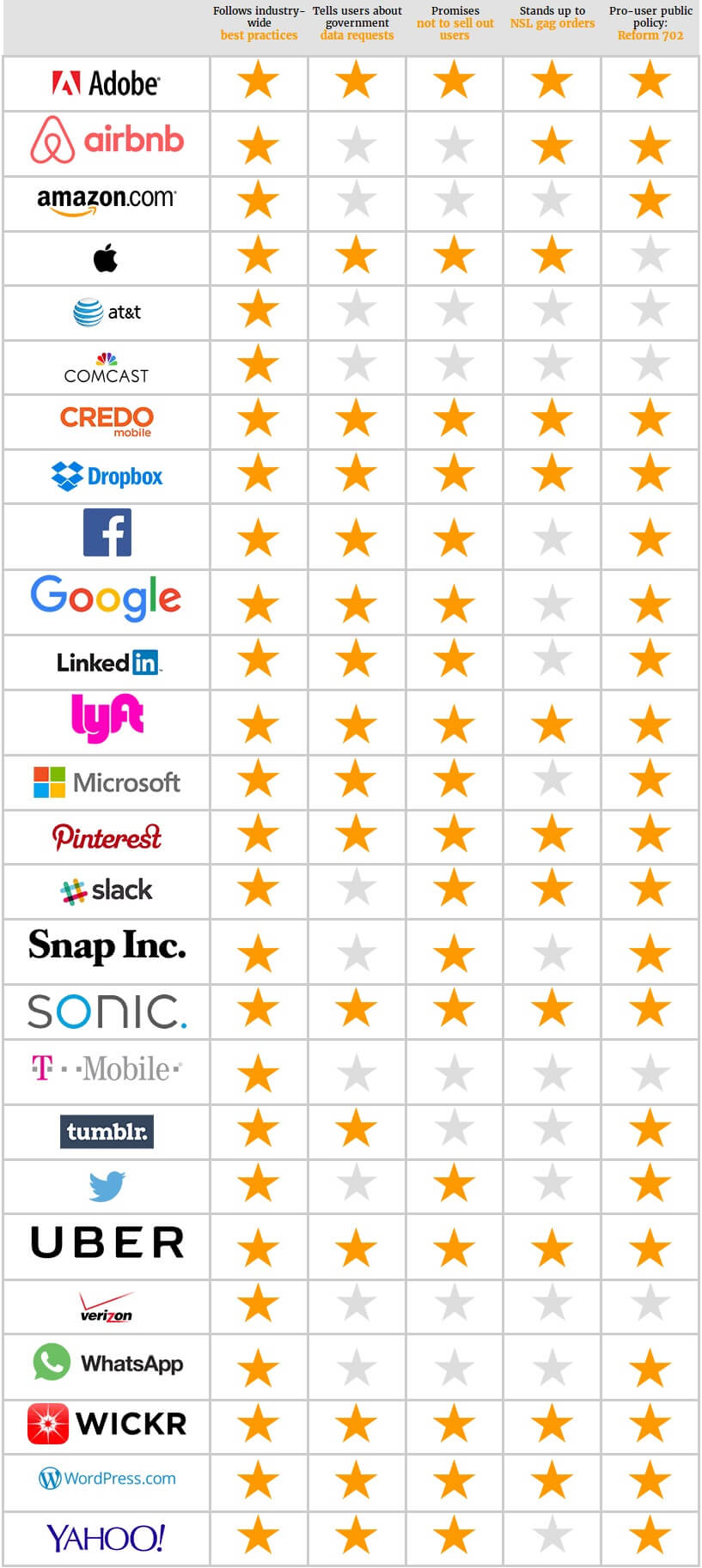Your personal information is held by a number of different companies, so it's good to know which ones fight to protect the data in the face of government requests. That's where the Electronic Frontier Foundation (EFF) comes in. The organization's annual "Who has your back" report reveals the firms that go the extra mile when it comes to protecting their users' privacy.
The companies are ranked in five categories: following industry-wide practices, telling users about government data requests, promising not to sell out users who may be of interest to government organizations, standing up to government gag orders, and fighting for pro-user public policy: Reform 702.
Only nine out of the 26 companies received a star in every category. Adobe, Credo, Dropbox, Lyft, Pinterest, Sonic, Uber, Wickr, and Wordpress all came away with top marks.
Apple, Google, Facebook, and Microsoft all received four stars. The iPhone maker missed out on the pro-user public policy category. It has yet to publicly call for a reform of Section 702 of the Foreign Intelligence Surveillance (FISA) Amendments Act, which allows agencies to target the communications of non-U.S. persons located outside the United States - though in some cases it enables collection of emails and phone calls from U.S. citizens. The three other tech giants, meanwhile, failed the "stands up to NSL gag orders" criteria.

Near the bottom of the rankings sits Amazon and WhatsApp, who both received just two stars - one for best practices and one for supporting section 702's reform. "We were disappointed that two technology companies fell short of other online services: Amazon and WhatsApp," the report states.
The worst performers are the telecoms companies. Verizon, AT&T, and Comcast all managed just one star, and that was for the "follows best practices" category.
"When it comes to adopting policies that prioritize user privacy over facilitating government data demands, the telecom industry for the most part has erred on the side of prioritizing government requests," the report said.
"But telecommunications companies can do better. For example, Credo Mobile has repeatedly proven that telecom companies can adopt policies that earn credit in every category year after year. Similarly, Sonic, an ISP competitor to AT&T, Comcast, T-Mobile, and Verizon, has now earned credit in every category of EFF's annual report for five years."
You can read the full report on the EFF's website.
